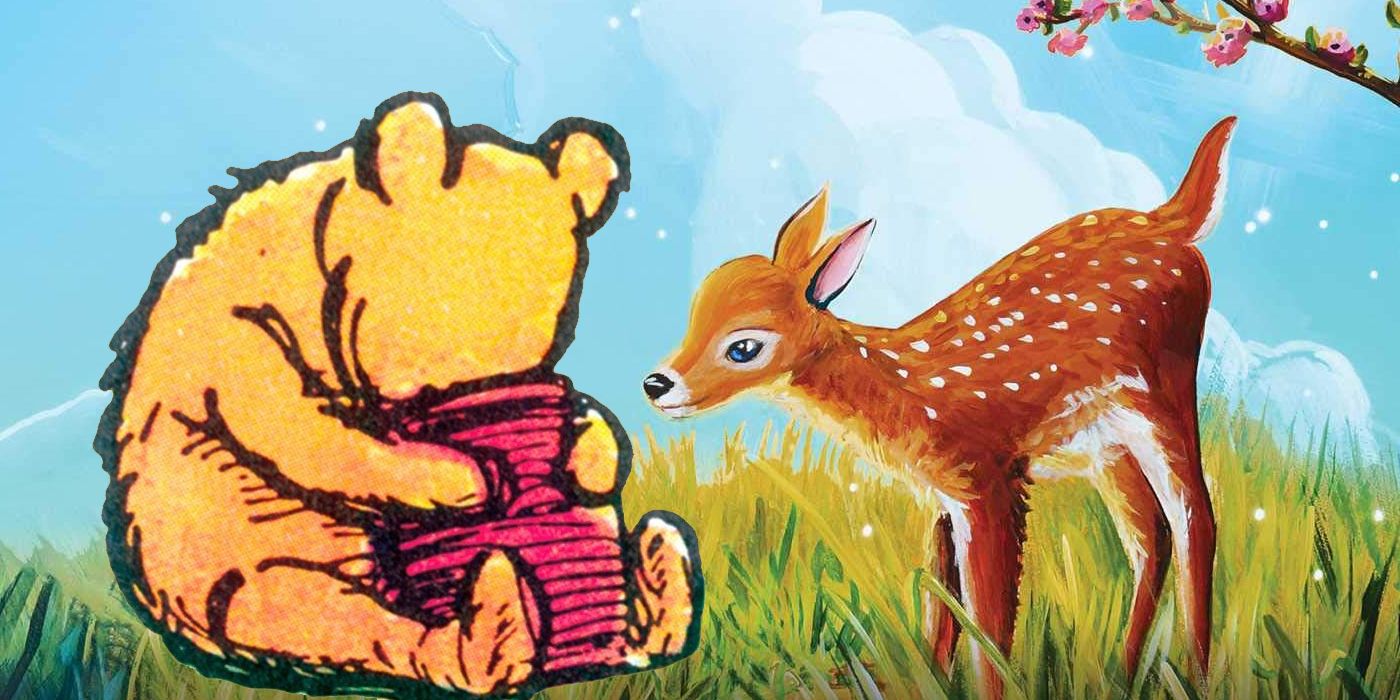A. A. Milne's first Winnie-the-Pooh book, illustrated by E. H. Shepard, and Felix Saten's Bambi, a Life in the Woods are among the works first published in 1926 that will enter the public domain in the United States on Jan. 1, 2022.
Copyright laws vary from country to country, but due to the Copyright Term Extension Act of 1998, copyrights on published works in the U.S. now typically expire 95 years after their initial publication. Older laws were based on renewals or on the life of the author plus a given number of years, so there are some notable works since 1926 that were already in the public domain, but everything published in 1926 is now public domain as of 2022.
In the case of Pooh and Bambi, it's important to note that their public domain status only extends to the original books and not subsequent sequels or adaptations. While Pooh, Piglet, Kanga, Roo, Eeyore, Rabbit, Owl and Christopher Robin are now public domain characters, Tigger, who was introduced in the 1928 book The House at Pooh Corner, is still under copyright until 2024. The Disney animated movies of Pooh and Bambi will be under copyright protection for many years to come.
In the case of Pooh, Disney still controls the trademark for the entire franchise, so while the original book can now be republished without violating copyright, further adaptations and merchandise could still potentially be deemed in violation of the trademark. Unlike copyrights, which protect an original work, trademarks are based around distinguishing businesses from one another and can be enforced in perpetuity as long as they're in use. Edgar Rice Burroughs' original Tarzan stories, for instance, are in the public domain, but the Burroughs estate still enforces its trademark over the character, and Disney is expected to take a similar course of action when Mickey Mouse enters the public domain in 2024.
Other noteworthy books from 1926 entering the public domain in 2022 include Ernest Hemingway's The Sun Also Rises, Dorothy Parker's Enough Rope, Langston Hughes' The Weary Blues, T. E. Lawrence's The Seven Pillars of Wisdom, Kahlil Gibran's Sand and Foam, Agatha Christie's The Murder of Roger Aykroyd, Edna Ferber's Showboat, William Faulker's Soldier's Play, Willa Cather's My Mortal Enemy, D. H. Lawrence's The Plumed Serpent and H. L. Mencken's Notes on Democracy.
Source: Duke Law

